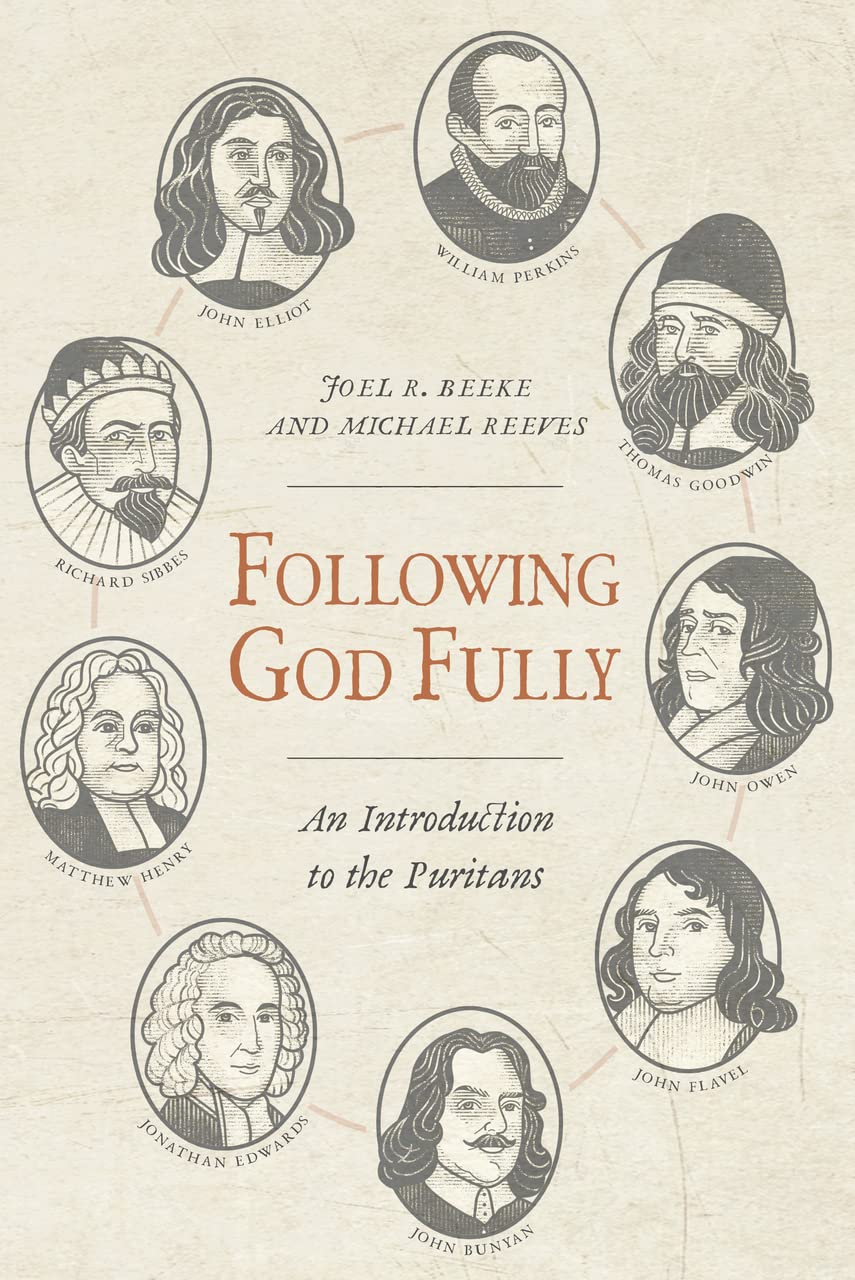A Book Review from Books at Glance
by Simon Viss
There is a mixed bag of information and commentary when it comes to the term “Puritanism.” For example, the Salem Witch Trials and slavery are common issues that are grouped with the Puritans, and though it is historically inaccurate to lump all (even most) of Puritanism in these immoral practices, they are also not completely innocent. However, because these events have marred the Puritan name it is frequently seen as undesired, unsalvageable, and should be discarded entirely. Sure, every historical era has its faults, and the Puritans are no exception, but should they be accursed altogether?
In Following God Fully: An Introduction to the Puritans, Joel R. Beeke (professor of systematic theology and homiletics at Puritan Reformed Theological Seminary, Grand Rapids, MI) and Michael Reeves (president and professor of theology at Union School of Theology, Oxford, UK) claim that Puritanism is often misunderstood. Throwing out the entire bath is a hasty view of Puritanism, and what gets lost is the baby: some of the greatest written works on Reformed theology and a rich exploration of robust, biblical preaching. They argue that the heart of Puritanism is found in faithful men who sought to display the treasures of God’s Word and herald the supremacy of Jesus Christ, resulting in a life filled with joy and assurance of God’s salvation for the elect. At its worst, Puritanism is legalistic, but at its best, it is peak reformed theology.
In 151 pages, Beeke and Reeves answer these questions:
- “What is Puritanism?”
- “Who are the Puritans?”
- “What did they believe?”
- “Are they relevant?”
To help encapsulate this information, the book is divided into 7 parts with 44 chapters (2-3 pages each). This gives the reader a wealth of content that can be ingested in short pockets of time. Like a tapas-style meal, each chapter is a bite-sized portion of a bigger Puritan topic that is still rich in flavor and satisfying in consumption (and easily shared!). In parts one and two Beeke and Reeves define Puritanism and introduce nine Puritan stalwarts, including Richard Sibbes, Thomas Goodwin, John Owen, and John Bunyan. Parts three, four, and five present a medley of Puritan theology concerning their views on the Trinity, salvation, and the church. Finally, parts six and seven concern the Puritan life in practice and lessons we can learn from them today.
One highlight of the book is Beeke’s and Reeves’ ability to convey the Puritans as pastors. What drove their devotion to think rightly about Scripture and theology is their heart to shepherd a people, to present them mature in Christ. In their chapter on sanctification, the authors write “As Pastors, the Puritans…saw themselves as spiritual heart doctors. They wanted their people to love the Lord with all their hearts; they wanted them to truly hate their sin, and not merely dread the thought of God’s punishment of it” (78). Being a professor of the Word was not enough. The Puritans desired for the church to know God and worship Him aright. Beeke and Reeves do well to communicate that this is the center of pastoral ministry today, and the Puritans are a noble example.
Overall, the book accomplishes the feat of giving a short, summarized account of Puritan history and theology that whets the appetite for further study. It can be common to finish an introductory work and still feel lost in how to proceed, but in the final chapter of the book (150-151) Beeke and Reeves provide guidance and recommendations for those who wish to start reading the rich content of the Puritans, how to start and how to progress into subsequent works.
Anyone wishing to embark or refresh on the journey of Puritanism will benefit greatly from this read. I highly recommend it!
Simon Viss
